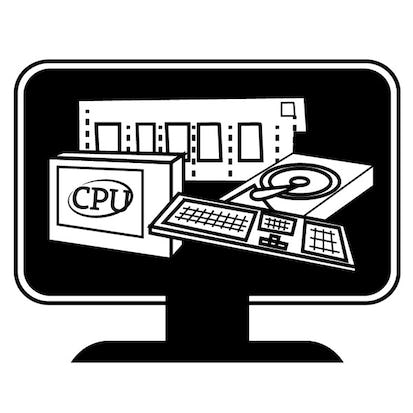- Level Foundation
- Duration 10 hours
- Course by University of London
-
Offered by

About
Computers are everywhere, they aren't just the desktops and laptops we use for work but the phones in our pockets and even the watches on our wrists are also computers. You probably use a computer every day and in fact you are reading this on a computer! Just because we use computers all the time, doesn't mean that we understand them, or find them easy to use. Computer Science is the science of computers, it is the field of knowledge that experts use to understand computer systems. Knowing a little computer science will help you understand the computers all around you. This isn't a how-to course for a particular piece of software, instead you will learn some fundamental concepts that you can apply to any software or computer system. You'll apply these concepts to the kind of computer systems we use every day, including word processing applications, e-commerce, the internet and web sites. You will learn how to apply computer science concepts to solve problems in daily computer use and generally be a better computer user. Taking this course could be the start of your career in computer science, and the course is an introduction to the Bachelors in Computer Science from University of London, but it is also for you if you just want to learn a little computer science to help you better understand the computers you use in your ordinary life.Modules
Lesson 1.0 Introduction
1
Discussions
- 1.0.2 Introductory discussion
1
Videos
- 1.0.1 What is computer science and how can it help us
1
Readings
- 1.0.3 Further Reading
Lesson 1.1 Abstraction
1
Assignment
- 1.1.4 Abstraction
1
Discussions
- 1.1.6 Notional machines
5
Videos
- 1.1.1 Abstraction
- 1.1.2 Abstraction in data representations
- 1.1.3 Notional machines
- 1.1.5 CPU and memory
- 1.1.7 Summary
Lesson 2.1 State
1
Assignment
- 2.1.4 State
2
Discussions
- 2.1.2 The deep secret of computer science
- 2.1.6 States of software
4
Videos
- 2.1.1 The deep secret of computer science
- 2.1.3 State
- 2.1.5 An e-commerce site
- 2.1.7 Why does turning it off and on again work?
Lesson 2.2 Modularity and applications
2
Assignment
- 2.2.2 Files
- 2.2.7 Debugging an application problem
4
Videos
- 2.2.1 A notional machine: files
- 2.2.3 Modularity
- 2.2.4 Applications
- 2.2.6 Debugging
1
Readings
- 2.2.5 Looking inside applications
Lesson 2.3 Summary
1
Assignment
- 2.3.3 Summative quiz
1
Peer Review
- 2.3.1 An application
1
Discussions
- 2.3.2 Notional machines
1
Videos
- 2.3.4 Summary
Lesson 3.1: Networks
1
Assignment
- 3.1.3 Networks
2
Videos
- 3.1.1 Networks
- 3.1.2 The internet
Lesson 3.2: Security
2
Assignment
- 3.2.6 Security: what have you learned?
- 3.2.7 Case study: debugging a web load error
1
Discussions
- 3.2.2 Security risks
5
Videos
- 3.2.1 Security threats
- 3.2.3 Encryption
- 3.2.4 Security defenses
- 3.2.5 The perils of the password: Interview with Sarah Wiseman
- 3.2.8 Summary
Lesson 4.0 Introduction
1
Assignment
- 4.0.1 Motivating problem
1
Discussions
- 4.0.3 Notional machine for a website
1
Videos
- 4.0.2 What is a website?
Lesson 4.1 Web applications
1
Assignment
- 4.1.8 Websites
7
Videos
- 4.1.1 Websites
- 4.1.2 Networks and the Web
- 4.1.3 Security and the Web
- 4.1.4 State and the Web
- 4.1.5 Clients and servers
- 4.1.6 Embedding and APIs
- 4.1.7 Your data
Lesson 4.2 Summary
1
Assignment
- 4.2.3 Summative quiz
1
Peer Review
- 4.2.1 How does a website work?
1
Discussions
- 4.2.2 Computer science
1
Videos
- 4.2.5 MOOC Summary
1
Readings
- 4.2.4 Further Learning
Auto Summary
Explore the fascinating world of computers with "How Computers Work," an introductory course in IT & Computer Science led by experts from the University of London on Coursera. Over 600 minutes, you'll delve into fundamental concepts applicable to everyday computer systems, from word processing to e-commerce. Ideal for beginners or those considering a career in computer science, this foundational course offers flexible subscription options including Starter, Professional, and Paid plans. Enhance your understanding and problem-solving skills in the digital age!

Prof Marco Gillies


